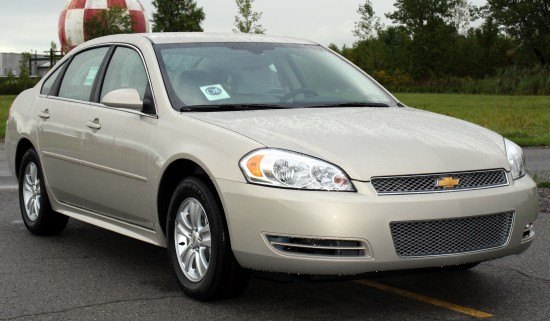DOD: Connected Technologies Growing More Vulnerable To Sabotage
As connected technologies make inroads into vehicles et al, the growing possibility of sabotage has the Department of Defense and DARPA on notice.
Per Jalopnik, CBS’ “60 Minutes” spent some time with DARPA Information Innovation Office chief Dan Kaufman to explore the vulnerabilities of connected technology coming into play not only on the road, but at home, in the office et al.
In one demonstration, Kaufman was able to break into the OnStar system aboard a previous-gen Chevrolet Impala, transplanting a code that allowed him to control everything on the car, from the wipers and the horn, to the braking and acceleration system itself.
The situation may be more dire still: a report from Sen. Ed Markey of Massachusetts’ office states all new vehicles can be hacked, and that only “two out of 16 car makers can diagnose or respond to an infiltration in real-time.”
Seattle-based writer, blogger, and photographer for many a publication. Born in Louisville. Raised in Kansas. Where I lay my head is home.
More by Cameron Aubernon
Latest Car Reviews
Read moreLatest Product Reviews
Read moreRecent Comments
- Corey Lewis It's not competitive against others in the class, as my review discussed. https://www.thetruthaboutcars.com/cars/chevrolet/rental-review-the-2023-chevrolet-malibu-last-domestic-midsize-standing-44502760
- Turbo Is Black Magic My wife had one of these back in 06, did a ton of work to it… supercharger, full exhaust, full suspension.. it was a blast to drive even though it was still hilariously slow. Great for drive in nights, open the hatch fold the seats flat and just relax.Also this thing is a great example of how far we have come in crash safety even since just 2005… go look at these old crash tests now and I cringe at what a modern electric tank would do to this thing.
- MaintenanceCosts Whenever the topic of the xB comes up…Me: "The style is fun. The combination of the box shape and the aggressive detailing is very JDM."Wife: "Those are ghetto."Me: "They're smaller than a Corolla outside and have the space of a RAV4 inside."Wife: "Those are ghetto."Me: "They're kind of fun to drive with a stick."Wife: "Those are ghetto."It's one of a few cars (including its fellow box, the Ford Flex) on which we will just never see eye to eye.
- Oberkanone The alternative is a more expensive SUV. Yes, it will be missed.
- Ajla I did like this one.


































Comments
Join the conversation
There was a similar article posted on Ars Technica yesterday. The same points apply here: * While the premise is true, you need to have the vehicle in your possession to pull off the hack. Anyone in IT knows that, if you have physical access, getting pwned is pretty much assured. * Say it again: this isn't a remote exploit. It's a local hack. I could just as easily connect to the CAN bus via your diagnostic port and wreak all sorts of havoc, or, for that matter, I could loosen your lugnuts, cut your brake lines and put nails in your tires. Now, if someone could hack into OnStar corporate and, from there, connect to your vehicle, that would be a neat trick. So would connecting to CAN via an in-car hotspot from another car. Both are quite a bit trickier than this. OEMs could do more to firewall the ECU and CAN bus from the ICE and telematics as a matter of course because, one day, someone will have the ECU connected to the internet, but this kind of vulnerability is Evil Maid territory and a non-story.
Whether they used an Impala or a Tesla or a Camry is immaterial. So is whether or not the said car uses some kind of connected service, OnStar is only one avenue. If your car has TPMS it is accessible.